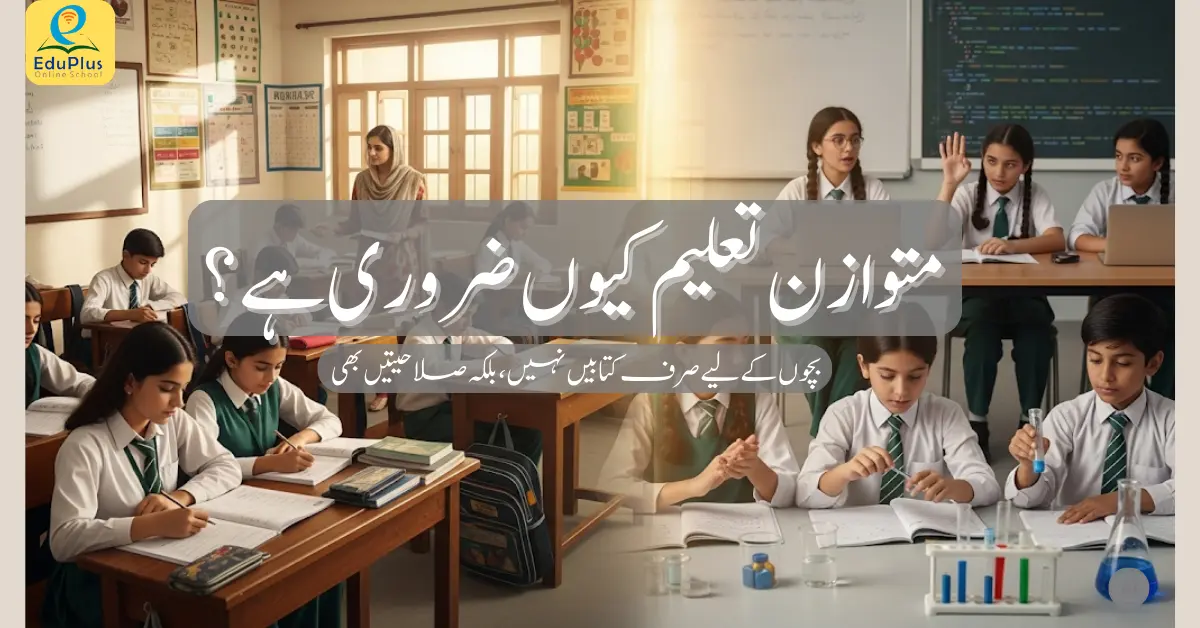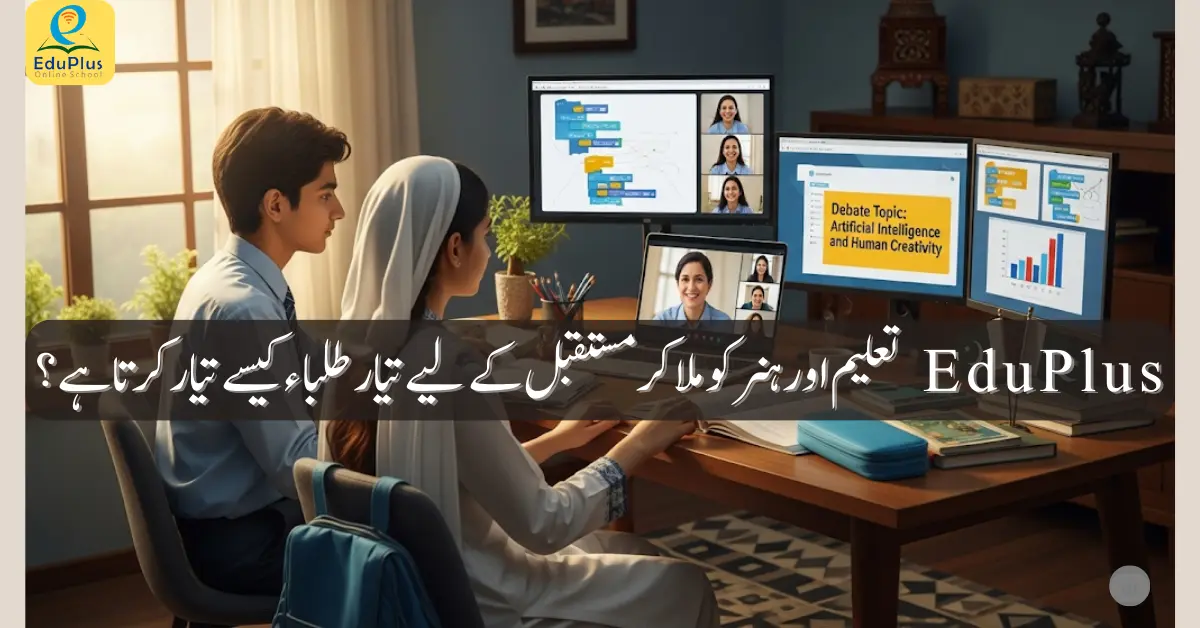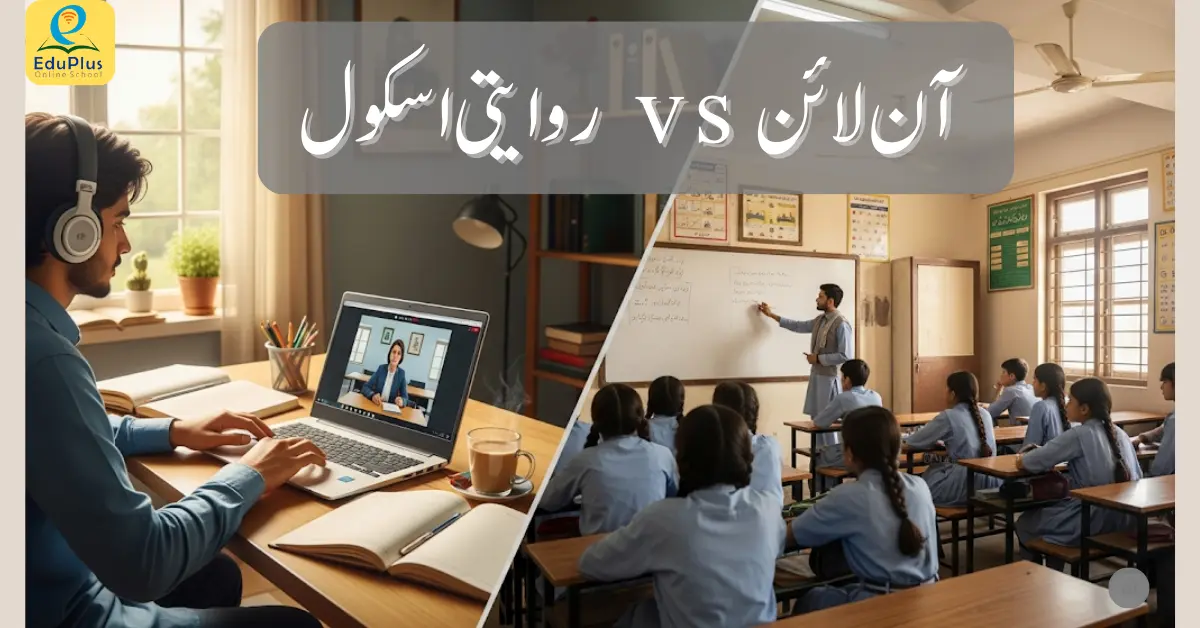Why True Education for Children Goes Beyond Just Books
Imagine a student in Pakistan who brings home a report card full of straight A’s and tops every exam, yet struggles to handle a simple real-life task like managing their pocket money or speaking confidently in front of a group. This is a common and concerning gap in our children’s education today. While our school education system excels at providing book knowledge and academic learning, it sometimes falls short in equipping students with the practical problem-solving and life skills they need to thrive.
Education experts in Pakistan often stress that a child’s future success depends just as much on emotional intelligence and resilience as it does on academic grades. The truth is, to build truly confident and capable individuals, we need a more balanced education approach. It’s about moving past the idea that a child’s worth is measured by grades alone. Instead, we should foster an environment where children learn how to apply what they read in textbooks to real-world situations, preparing them for the challenges of tomorrow.
This is the very heart of platforms like EduPlus. By seamlessly combining rigorous academics with essential skill development for students, we aim to help them not only ace their exams but also tackle life’s challenges with confidence. See the official Pakistan Education Policy Framework and you’ll find that this holistic vision is something that aligns with the government’s own goals. We believe that true education is a partnership between books and life, and that’s the kind of future we are building for our children.
Why Every Student Needs Skills as Much as Textbooks
Teaching a child how to solve problems today can prepare them for challenges we can’t even predict tomorrow. While traditional academic subjects build a vital foundation of knowledge, they often fall short in bridging the gap between theoretical knowledge and real-world application. A student might be able to recite historical dates perfectly, but can they analyze a complex situation and form their own opinion? That’s where skill development for students comes in.
The modern job market in Pakistan, much like the rest of the world, is evolving rapidly. Employers are increasingly looking for more than just a strong academic record. They seek individuals with practical skills such as critical thinking, communication, collaboration, and adaptability. These are the soft skills for kids that empower them to thrive in a dynamic work environment and stand out from the competition. For instance, a student with strong communication skills can articulate their ideas effectively, making them a valuable asset in any professional setting. A Lahore-based education consultant notes that students who participate in debate clubs often outperform their peers in interviews, regardless of their grades.
This is why developing life skills for children is not an optional extra; it’s an essential component of a complete education. These skills complement academic learning, making it more meaningful and useful. Imagine a math lesson where a student not only learns multiplication but also uses it to create a weekly budget. Or consider a language class where students practice public speaking and presentation skills instead of just memorizing grammar rules. These examples demonstrate how practical skills for students can be woven into the curriculum, giving them a more profound understanding of the subjects they are studying.
For parents who worry that focusing on skills will take away from academic rigor, it’s important to understand that this is not a trade-off. Instead, it’s an enhancement. A balanced education approach ensures that academics and skills go hand-in-hand, creating a powerful synergy. The goal isn’t to replace books but to ensure that the knowledge gained from them can be confidently applied to real-life situations. The importance of skills is widely recognized; you can read the UNESCO report on skills-based learning benefits to see how global research supports this approach. This idea — that skills and academics must go hand-in-hand — remains timeless, no matter how technology or curricula change. This kind of balanced education approach is what truly prepares children for life, not just for exams.
How a Balanced Learning Approach Transforms Students in Pakistan
Some of the most successful students aren’t just the ones with top grades—they’re the ones who can apply what they’ve learned in real life. That’s the core idea behind a balanced education approach. It’s a method that intentionally merges academic excellence with practical skill-building activities. This isn’t about adding extra homework; it’s about making every lesson more meaningful, creating a learning experience that develops a child’s confidence, creativity, and adaptability.
This type of learning creates a powerful feedback loop. When a child sees the real-world value of a concept, they become more motivated to learn it deeply. This is a key part of modern teaching methods in Pakistan. An Islamabad school principal shared that blending project-based learning with standard lessons improved overall student engagement by 40%. The result is a student who doesn’t just remember facts for an exam but genuinely understands the subject and can use that knowledge as a tool.
This approach translates into tangible examples. A child learning science doesn’t just read about plant biology; they conduct a simple experiment in their backyard to see it in action. In an Urdu literature class, students might not only analyze poetry but also participate in a debate competition to practice public speaking and critical thinking. These are the kinds of practical skills for students that make education come alive. They are what allow children to confidently transition from the classroom to the challenges of the world outside. The government’s vision for education also endorses such strategies; you can learn more in the Pakistan Modern Teaching Methods Guidelines.
This is the very essence of skill-based learning and it’s a timeless idea. At EduPlus, we’ve built our entire model around this philosophy, ensuring that your child’s learning is not just about passing grades, but about building a well-rounded and successful future.
Inside the EduPlus Model: Blending Academics with Real-World Skills
Imagine a school where your child masters both mathematics for exams and coding skills for the real world—all from home. This is the foundation of EduPlus online school and its mission to provide a truly complete education. We believe that to prepare students for a successful future, a school must do more than just follow a textbook; it must actively build the skills that will empower them throughout their lives. Our model is built to ensure every student receives a balanced education approach.
At EduPlus, we’ve structured our curriculum to offer the best of both worlds. The academic portion is fully aligned with the Federal Board online classes curriculum. Our instructors cover every topic and concept required to excel in exams, ensuring that students can compete with their peers on a national level. You can see the FBISE official curriculum framework to see how our subjects correspond. But that’s only half of our approach. Alongside these core subjects, we integrate a parallel track of skill-based courses. This means a student isn’t just a passive learner; they are a problem-solver in training.
Our delivery methods are designed to make this dual approach both flexible and highly effective for online schooling in Pakistan. Students attend live online classes for direct interaction and Q&A, and they can revisit lessons through recorded sessions. Crucially, we use interactive workshops and project-based learning to apply academic knowledge. For example, a student studying Computer Science for their exams also learns the basics of digital marketing or web design in a separate workshop. Or, a student in their English class might participate in weekly public speaking sessions to build their communication skills. EduPlus’s curriculum framework was designed in consultation with experienced Federal Board educators and industry professionals to ensure both academic compliance and market-relevant skills.
The beauty of this model is its accessibility. Regardless of whether a student lives in Karachi, Lahore, or a remote town, they have access to this comprehensive learning experience. This is a game-changer for combining books and skills. Here’s a quick comparison to show the difference:
| Feature | Traditional Schooling | EduPlus Model |
| Academic Curriculum | Focused on exams | Exam-focused + skill integration |
| Delivery Mode | In-person only | Online + Recorded + Live Workshops |
| Skills Training | Rare or absent | Built into weekly schedule |
| Accessibility | Location-bound | Nationwide via online platform |
| Practical Exposure | Limited | Project-based learning & simulations |
This model ensures students don’t just learn—they can do. It’s an approach that guarantees your child is not only ready for their exams but also for the future, equipped with the knowledge and the practical skills to succeed.
Cambridge, Montessori, and Beyond: Learning Frameworks Shaping Pakistan’s Classrooms
Ever wondered why some schools in Pakistan follow entirely different textbooks and teaching styles from others? The landscape of education in Pakistan is rich with diverse learning frameworks, each with its own philosophy and purpose. While the Federal Board curriculum is the national standard, many private institutions have adopted alternative models like the Cambridge curriculum in Pakistan and the Montessori method to cater to specific educational goals. Understanding these frameworks can help parents make informed decisions about their children’s schooling.
The Cambridge Curriculum in Pakistan
The Cambridge curriculum in Pakistan is a globally recognized framework offered by Cambridge Assessment International Education. It’s typically found in elite private schools across the country. The curriculum is structured to foster critical thinking, problem-solving, and in-depth subject knowledge from Primary to A-Levels. Its key feature is the final examination system, with papers prepared and marked by Cambridge International. A Karachi-based school administrator shared that switching to the Cambridge curriculum improved students’ analytical skills but required more teacher training. This approach is highly structured, and its primary goal is to prepare students for international universities and global careers. See details at Cambridge International Education.
The Montessori Method
The Montessori method, on the other hand, is a child-centered educational approach primarily used in early childhood education. Its core principles revolve around self-directed activity, hands-on learning, and collaborative play in a carefully prepared environment. Rather than direct instruction, children are guided to choose activities that spark their curiosity, allowing them to develop independence, concentration, and sensory skills. Assessment in a Montessori setting is observational, focusing on the child’s individual progress rather than standardized tests. This method is a popular choice for many early years programs and schools that believe in nurturing a child’s natural love for learning from a young age. Learn more from the Montessori Education Overview.
| Feature | Cambridge Curriculum | Montessori Method |
| Level | Primary to A-Levels | Early Childhood |
| Teaching Style | Structured, exam-focused | Self-paced, hands-on |
| Assessment | International exams | Observational progress tracking |
| Common Use in Pakistan | Elite private schools | Early years programs |
| Skill Integration | Critical thinking, global awareness | Independence, sensory development |
Both frameworks can complement the national system if applied thoughtfully. The existence of these diverse modern teaching methods in Pakistan shows a growing recognition that there is no single path to success. The key is to find a framework that balances academic rigor with the kind of hands-on, skills-based learning that truly prepares a child for the future.
Shaping Futures with Books and Skills — Final Thoughts & Common Questions
Your child’s future isn’t built on books alone—it’s shaped by every skill they learn along the way. Throughout this article, we’ve explored why a balanced education approach is crucial for children’s education in Pakistan and beyond. It’s about creating a powerful synergy where academic excellence is the foundation, and practical life skills for children are the tools they use to build their future. This is the new standard of complete education in Pakistan, one that prepares students not just to pass exams but to thrive in life.
A Lahore-based education consultant notes that schools integrating skill training into academics see better student engagement and long-term confidence. The true benefit of a balanced education is that it transforms a student from a passive receiver of information into an active, confident problem-solver. At EduPlus, this philosophy is at the heart of everything we do. We’ve built our platform on the conviction that by teaching both academics and life skills together, we can empower students to become the innovators and leaders of tomorrow.
If you’re ready to explore a schooling option that prioritizes your child’s holistic growth, we invite you to learn more about our unique model. We are dedicated to ensuring that every child has the opportunity for a high-quality education that is both academically rigorous and practically relevant. Visit our [EduPlus Admissions Page] to take the next step.
Common Questions from Parents
Q: Does focusing on skills mean my child’s grades will suffer?
A: Not at all. Our model is designed to enhance academic performance by showing students how to apply what they learn. By making subjects more engaging and relevant, we help students develop a deeper understanding that often leads to better grades. This is the core of our approach to combining books and skills.
Q: Is skill-based learning only for older students?
A: While some skills become more advanced, the foundation for skill-based learning can start from a young age. Early skill development focuses on critical thinking, communication, and collaboration through project-based activities, setting a strong foundation for more complex skills later on.
Q: How does EduPlus ensure the quality of both academic and skills courses?
A: Our curriculum is developed by experienced educators and industry experts to ensure it meets both Federal Board standards and real-world needs. We maintain a high standard of quality through continuous feedback, certified instructors, and a focus on practical application in all our courses.



